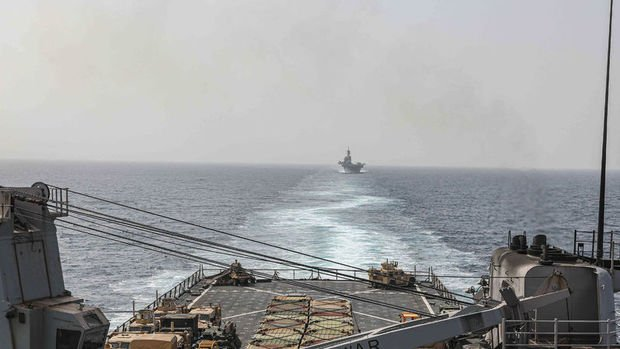Geopolitical concerns among US companies
The use of the Red Sea and geopolitical risk terms in U.S. balance sheet teleconferences has increased, while concerns are that rising tensions in the Middle East could drive up inflation and reduce profitability. Investors and companies have begun to warn that the rally that has carried U.S. stock indexes to record levels is under threat due to developments in the Middle East. According to Bloomberg’s analysis of recent balance sheet teleconferences held by companies, the boycott of some companies due to the conflicts poses a risk to profit margins, while attacks on commercial ships in the Red Sea also threaten supply chains. According to the analysis, while only half of the first-quarter balance sheets have been announced so far, the number of references to geopolitical risks or the Red Sea in the teleconferences has reached the same level as the previous quarter. Nicole Kornitzer of Kornitzer Capital Management Inc. said, “Geopolitical developments are a risk. “If the pressure continues for a longer period of time, that could put pressure on corporate margins and be inflationary as costs are passed on to prices. That kind of scenario is not part of profit forecasts,” he said. Bank of America’s latest survey of fund managers also showed that investors see geopolitics as the second-biggest risk to stock prices after inflation. While respondents said the two dangers were linked, they said escalating tensions in the Red Sea or the Middle East would lead to higher oil and freight prices and thus higher inflation. Goldman Sachs, however, raised its year-end forecast for the S&P 500 to 5,200 from 5,100, citing rising profit forecasts. Israel warns of operation in Rafah Israeli War Cabinet member Benny Gantz said on Sunday that his country would launch a ground offensive in the Rafah district of Gaza if Hamas hostages were not released by the start of Ramadan in March. Gantz said the army would facilitate the evacuation of Gaza civilians in coordination with the United States and Egypt to minimize casualties. An estimated 1 million Palestinians who fled the fighting in Gaza have taken refuge in the Rafah region south of the Egyptian border. “Hamas has a choice. They can surrender, they can release the hostages and Gazans can celebrate the holy month of Ramadan,” Gantz told American Jewish leaders in Jerusalem. Qatar said talks on a ceasefire and the release of prisoners were not progressing as hoped. The Israeli cabinet unanimously approved a statement by Prime Minister Benjamin Netanyahu rejecting the “international dictatorship” regarding a permanent agreement with the Palestinians.


